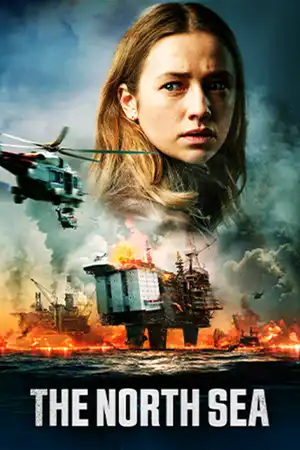Where to watch
Available at home
A submarine pilot fights to save an oil platform from an impending disaster.
Trailer
Why watch the movie The Burning Sea?
Hint: In a race across the US heartland, a red car discovers the true meaning of friendship.

Think you can guess today's movie? 🤔

One hint, 6 chances, and a new movie to guess every day
From the producers of The Quake. Oil exploration begins to have environmental consequences causing the collapse of a platform. A submarine pilot and researcher will do anything to save the site from an impending catastrophe.










"A disaster movie from Norway that stays true to the genre conventions: some human characters the story relies on, as a pretext for showing us action, destruction and survival scenes. However, The Burning Sea compensates for its conventionalism with an excellent execution, as the destruction scenes in the middle of the sea are as tense as they are impressive. It will certainly be a delight for fans of this type of movies."